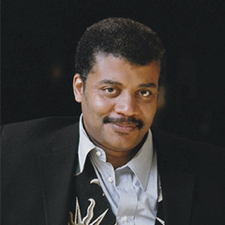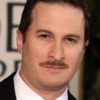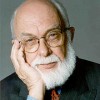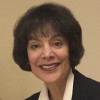Want to know what books Jerry Coyne recommends on their reading list? We've researched interviews, social media posts, podcasts, and articles to build a comprehensive list of Jerry Coyne's favorite book recommendations of all time.
1

Darwin's theory of natural selection issued a profound challenge to orthodox thought and belief: no being or species has been specifically created; all are locked into a pitiless struggle for existence, with extinction looming for those not fitted for the task.
Yet The Origin of Species (1859) is also a humane and inspirational vision of ecological interrelatedness, revealing the complex mutual interdependencies between animal and plant life, climate and physical environment, and—by implication—within the human world.
Written for the general reader, in a style... more Darwin's theory of natural selection issued a profound challenge to orthodox thought and belief: no being or species has been specifically created; all are locked into a pitiless struggle for existence, with extinction looming for those not fitted for the task.
Yet The Origin of Species (1859) is also a humane and inspirational vision of ecological interrelatedness, revealing the complex mutual interdependencies between animal and plant life, climate and physical environment, and—by implication—within the human world.
Written for the general reader, in a style which combines the rigour of science with the subtlety of literature, The Origin of Species remains one of the founding documents of the modern age. less 
Neil deGrasse TysonWhich books should be read by every single intelligent person on planet? [...] On the Origin of Species (Darwin) [to learn of our kinship with all other life on Earth]. If you read all of the above works you will glean profound insight into most of what has driven the history of the western world. (Source)

Darren Aronofsky[Darren Aronofsky recommended this book on the podcast "The Tim Ferriss Show".] (Source)
2

On the 10th anniversary of his death, brilliant astrophysisist and Pulitzer Prize winner Carl Sagan's prescient exploration of the relationship between religion and science and his personal search for God.
Carl Sagan is considered one of the greatest scientific minds of our time. His remarkable ability to explain science in terms easily understandable to the layman in bestselling books such as Cosmos, The Dragons of Eden, and The Demon-Haunted World won him a Pulitzer Prize and placed him firmly next to Isaac Asimov, Stephen Jay Gould, and Oliver Sachs as one... more On the 10th anniversary of his death, brilliant astrophysisist and Pulitzer Prize winner Carl Sagan's prescient exploration of the relationship between religion and science and his personal search for God.
Carl Sagan is considered one of the greatest scientific minds of our time. His remarkable ability to explain science in terms easily understandable to the layman in bestselling books such as Cosmos, The Dragons of Eden, and The Demon-Haunted World won him a Pulitzer Prize and placed him firmly next to Isaac Asimov, Stephen Jay Gould, and Oliver Sachs as one of the most important and enduring communicators of science. In December 2006 it will be the tenth anniversary of Sagan's death, and Ann Druyan, his widow and longtime collaborator, will mark the occasion by releasing Sagan's famous "Gifford Lectures in Natural Theology," The Varieties of Scientific Experience: A Personal View of the Search for God.
The chance to give the Gifford Lectures is an honor reserved for the most distinguished scientists and philosophers of our civilization. In 1985, on the grand occasion of the centennial of the lectureship, Carl Sagan was invited to give them. He took the opportunity to set down in detail his thoughts on the relationship between religion and science as well as to describe his own personal search to understand the nature of the sacred in the vastness of the cosmos.
The Varieties of Scientific Experience, edited, updated and with an introduction by Ann Druyan, is a bit like eavesdropping on a delightfully intimate conversation with the late great astronomer and astrophysicist. In his charmingly down-to-earth voice, Sagan easily discusses his views on topics ranging from manic depression and the possibly chemical nature of transcendance to creationism and so-called intelligent design to the likelihood of intelligent life on other planets to the likelihood of nuclear annihilation of our own to a new concept of science as "informed worship." Exhibiting a breadth of intellect nothing short of astounding, he illuminates his explanations with examples from cosmology, physics, philosophy, literature, psychology, cultural anthropology, mythology, theology, and more. Sagan's humorous, wise, and at times stunningly prophetic observations on some of the greatest mysteries of the cosmos have the invigorating effect of stimulating the intellect, exciting the imagination, and reawakening us to the grandeur of life in the cosmos. less 
Jerry CoyneOf all these books, this is the one that resonates most for me. It was edited by his wife and published in 2006. It’s a distillation of the Gifford Lectures, a very prestigious series of lectures given in Scotland, endowed to give famous people a chance to talk about natural theology i.e. the relationship between science and religion. They’ve been going more than 100 years by now and they gave... (Source)
3
We can’t avoid the persistent questions about the meaning of life—and the nature of reality. But science is the only means of answering them. So declares philosopher Alex Rosenberg in this bracing, surprisingly sanguine take on a world without god. The science that makes us nonbelievers, he demonstrates, tells us the nature of reality, the purpose of everything, the difference between right and wrong, how the mind works, even the direction of human history. more We can’t avoid the persistent questions about the meaning of life—and the nature of reality. But science is the only means of answering them. So declares philosopher Alex Rosenberg in this bracing, surprisingly sanguine take on a world without god. The science that makes us nonbelievers, he demonstrates, tells us the nature of reality, the purpose of everything, the difference between right and wrong, how the mind works, even the direction of human history. less 4

God in the Age of Science? is a critical examination of strategies for the philosophical defence of religious belief. The main options may be presented as the end nodes of a decision tree for religious believers. The faithful can interpret a creedal statement (e.g. 'God exists') either as a truth claim, or otherwise. If it is a truth claim, they can either be warranted to endorse it without evidence, or not. Finally, if evidence is needed, should its evidential support be assessed by the same logical criteria that we use in evaluating evidence in science, or not? Each of these options has... more God in the Age of Science? is a critical examination of strategies for the philosophical defence of religious belief. The main options may be presented as the end nodes of a decision tree for religious believers. The faithful can interpret a creedal statement (e.g. 'God exists') either as a truth claim, or otherwise. If it is a truth claim, they can either be warranted to endorse it without evidence, or not. Finally, if evidence is needed, should its evidential support be assessed by the same logical criteria that we use in evaluating evidence in science, or not? Each of these options has been defended by prominent analytic philosophers of religion. In part I Herman Philipse assesses these options and argues that the most promising for believers who want to be justified in accepting their creed in our scientific age is the Bayesian cumulative case strategy developed by Richard Swinburne. Parts II and III are devoted to an in-depth analysis of this case for theism. Using a 'strategy of subsidiary arguments', Philipse concludes (1) that theism cannot be stated meaningfully; (2) that if theism were meaningful, it would have no predictive power concerning existing evidence, so that Bayesian arguments cannot get started; and (3) that if the Bayesian cumulative case strategy did work, one should conclude that atheism is more probable than theism. Philipse provides a careful, rigorous, and original critique of theism in the world today. less 
Jerry CoyneTheology is basically a warped form of philosophy. I’ll get in trouble for saying it, but it’s a fact. Theology is the kind of philosophy that’s applied to a non-existent object. So they use all the tools of philosophy. If you read sophisticated theology there’s even Bayesian analysis and mathematical logic in there. So it looks like philosophy but it all applies to a meaningless question... (Source)
5

An innovative thinker tackles the controversial question of why we believe in God and how religion shapes our lives and our future.
For a growing number of people, there is nothing more important than religion. It is an integral part of their marriage, child rearing, and community. In this daring new book, distinguished philosopher Daniel C. Dennett takes a hard look at this phenomenon and asks why. Where does our devotion to God come from and what purpose does it serve? Is religion a blind evolutionary compulsion or a rational choice? In "Breaking the Spell," Dennett argues that... more An innovative thinker tackles the controversial question of why we believe in God and how religion shapes our lives and our future.
For a growing number of people, there is nothing more important than religion. It is an integral part of their marriage, child rearing, and community. In this daring new book, distinguished philosopher Daniel C. Dennett takes a hard look at this phenomenon and asks why. Where does our devotion to God come from and what purpose does it serve? Is religion a blind evolutionary compulsion or a rational choice? In "Breaking the Spell," Dennett argues that the time has come to shed the light of science on the fundamental questions of faith. In a spirited narrative that ranges widely through history, philosophy, and psychology, Dennett explores how organized religion evolved from folk beliefs and why it is such a potent force today. Deftly and lucidly, he contends that the "belief in belief" has fogged any attempt to rationally consider the existence of God and the relationship between divinity and human need.
"Breaking the Spell" is not an antireligious screed but rather an eyeopening exploration of the role that belief plays in our lives, our interactions, and our country. With the gulf between rationalists and adherents of "intelligent design" widening daily, Dennett has written a timely and provocative book that will be read and passionately debated by believers and nonbelievers alike. less 
Jerry CoyneHe calls it Breaking the Spell for a reason. He thinks there is this sanctity about religion which prevents people from asking, “Where did it come from in the first place?” It’s a human construct, after all, it wasn’t given to humanity by God. It couldn’t have been, because we have thousands of different religions. So even religious people recognize the human contribution to religion. At the... (Source)
6
Andrew Dickson White | 3.83

Jerry CoyneHe wanted to model it on the European system, which by that time had become secular. Universities were originally, in the Middle Ages, religious institutions. Dickson White and Cornell agreed that they were going to make this university secular because only by insulating universities from the influence of religion could there be free inquiry. And he’s absolutely right about that. They put a... (Source)
7

***30th Anniversary Edition***
Cover note: Each copy of the anniversary edition of The Blind Watchmaker features a unique biomorph. No two covers are exactly alike.
Acclaimed as the most influential work on evolution written in the last hundred years, The Blind Watchmaker offers an inspiring and accessible introduction to one of the most important scientific discoveries of all time. A brilliant and controversial book which demonstrates that evolution by natural selection - the unconscious, automatic, blind yet essentially... more ***30th Anniversary Edition***
Cover note: Each copy of the anniversary edition of The Blind Watchmaker features a unique biomorph. No two covers are exactly alike.
Acclaimed as the most influential work on evolution written in the last hundred years, The Blind Watchmaker offers an inspiring and accessible introduction to one of the most important scientific discoveries of all time. A brilliant and controversial book which demonstrates that evolution by natural selection - the unconscious, automatic, blind yet essentially non-random process discovered by Darwin - is the only answer to the biggest question of all: why do we exist? less 

 Recommended by James Randi, Jerry Coyne, Tom Clarke, and 4 others.
Recommended by James Randi, Jerry Coyne, Tom Clarke, and 4 others. 
James RandiThey talk about the blind watchmaker not being able to make a watch, but if you’re given an almost infinite number of combinations and permutations of materials and situations, the world will come about. Or it may not. In our case, it came about. You’re here, I’m here, and I’m very happy about that. (Source)

Jerry CoyneIf I had to pick just one self-contained book that lays out Dawkins’s philosophy and methodology, and shows his literary skills, I would have to pick this one. (Source)

Tom ClarkeDawkins brought Darwin up to date, explaining evolution in a way that incorporates our understanding of genetics and heredity. (Source)
8

Few lives of great men offer so much interest--and so many mysteries--as the life of Charles Darwin, the greatest figure of nineteenth-century science, whose ideas are still inspiring discoveries and controversies more than a hundred years after his death. Yet only now, with the publication of Voyaging, the first of two volumes that will constitute the definitive biography, do we have a truly vivid and comprehensive picture of Darwin as man and as scientist. Drawing upon much new material, supported by an unmatched acquaintance with both the intellectual setting and the voluminous... more Few lives of great men offer so much interest--and so many mysteries--as the life of Charles Darwin, the greatest figure of nineteenth-century science, whose ideas are still inspiring discoveries and controversies more than a hundred years after his death. Yet only now, with the publication of Voyaging, the first of two volumes that will constitute the definitive biography, do we have a truly vivid and comprehensive picture of Darwin as man and as scientist. Drawing upon much new material, supported by an unmatched acquaintance with both the intellectual setting and the voluminous sources, Janet Browne has at last been able to unravel the central enigma of Darwin's career: how did this amiable young gentleman, born into a prosperous provincial English family, grow into a thinker capable of challenging the most basic principles of religion and science? The dramatic story of Voyaging takes us from agonizing personal challenges to the exhilaration of discovery; we see a young, inquisitive Darwin gradually mature, shaping, refining, and finally setting forth the ideas that would at last fall upon the world like a thunderclap in The Origin of Species.
?
-- "Library Journal" less 
Jerry CoyneThis may be the best scientific biography I have ever read. It’s just absolutely engrossing. (Source)
9

Donald R. Prothero's Evolution is an entertaining and rigorous history of the transitional forms and series found in the fossil record. Its engaging narrative of scientific discovery and well-grounded analysis has led to the book's widespread adoption in courses that teach the nature and value of fossil evidence for evolution. Evolution tackles systematics and cladistics, rock dating, neo-Darwinism, and macroevolution. It includes extensive coverage of the primordial soup, invertebrate transitions, the development of the backbone, the reign of the dinosaurs, and the... more Donald R. Prothero's Evolution is an entertaining and rigorous history of the transitional forms and series found in the fossil record. Its engaging narrative of scientific discovery and well-grounded analysis has led to the book's widespread adoption in courses that teach the nature and value of fossil evidence for evolution. Evolution tackles systematics and cladistics, rock dating, neo-Darwinism, and macroevolution. It includes extensive coverage of the primordial soup, invertebrate transitions, the development of the backbone, the reign of the dinosaurs, and the transformation from early hominid to modern human. The book also details the many alleged "missing links" in the fossil record, including some of the most recent discoveries that flesh out the fossil timeline and the evolutionary process.
In this second edition, Prothero describes new transitional fossils from various periods, vividly depicting such bizarre creatures as the Odontochelys, or the "turtle on the half shell"; fossil snakes with legs; and the "Frogamander," a new example of amphibian transition. Prothero's discussion of intelligent design arguments includes more historical examples and careful examination of the "experiments" and observations that are exploited by creationists seeking to undermine sound science education. With new perspectives, Prothero reframes creationism as a case study in denialism and pseudoscience rather than a field with its own intellectual dynamism. The first edition was hailed as an exemplary exploration of the fossil evidence for evolution, and this second edition will be welcome in the libraries of scholars, teachers, and general readers who stand up for sound science in this post-truth era. less 
Jerry CoyneIt is the one book that lays out in great detail some of the strongest evidence for evolution, which is the fossil record. (Source)
10

The definitive refutation to the argument of The Bell Curve.
How smart are you? If that question doesn't spark a dozen more questions in your mind (like "What do you mean by 'smart,'" "How do I measure it" and "Who's asking?"), then The Mismeasure of Man, Stephen Jay Gould's masterful demolition of the IQ industry, should be required reading. Gould's brilliant, funny, engaging prose dissects the motivations behind those who would judge intelligence, and hence worth, by cranial size, convolutions, or score on extremely narrow tests. How did scientists decide that... more The definitive refutation to the argument of The Bell Curve.
How smart are you? If that question doesn't spark a dozen more questions in your mind (like "What do you mean by 'smart,'" "How do I measure it" and "Who's asking?"), then The Mismeasure of Man, Stephen Jay Gould's masterful demolition of the IQ industry, should be required reading. Gould's brilliant, funny, engaging prose dissects the motivations behind those who would judge intelligence, and hence worth, by cranial size, convolutions, or score on extremely narrow tests. How did scientists decide that intelligence was unipolar and quantifiable? Why did the standard keep changing over time? Gould's answer is clear and simple: power maintains itself. European men of the 19th century, even before Darwin, saw themselves as the pinnacle of creation and sought to prove this assertion through hard measurement. When one measure was found to place members of some "inferior" group such as women or Southeast Asians over the supposedly rightful champions, it would be discarded and replaced with a new, more comfortable measure. The 20th-century obsession with numbers led to the institutionalization of IQ testing and subsequent assignment to work (and rewards) commensurate with the score, shown by Gould to be not simply misguided--for surely intelligence is multifactorial--but also regressive, creating a feedback loop rewarding the rich and powerful. The revised edition includes a scathing critique of Herrnstein and Murray's The Bell Curve, taking them to task for rehashing old arguments to exploit a new political wave of uncaring belt tightening. It might not make you any smarter, but The Mismeasure of Man will certainly make you think.--Rob Lightner
This edition is revised and expanded, with a new introduction less 
Carol DweckI was raised in the heyday of the IQ craze. My sixth grade teacher seated us around the room in IQ order and assigned all privileges on the basis of IQ. This book made me realise the effect it had on us and I saw that my work could play a role in bringing that era to a close. (Source)

Jerry CoyneHe had this Marxist viewpoint towards biology which in the end made him almost reject natural selection. (Source)

Susan GelmanThis is a classic book. It was published in 1981 and got a lot of attention when it came out. Gould just does this beautiful job of laying out the ‘biology as destiny’ idea – and then ripping it to shreds. (Source)
Don't have time to read Jerry Coyne's favorite books? Read Shortform summaries.
Shortform summaries help you learn 10x faster by:
- Being comprehensive: you learn the most important points in the book
- Cutting out the fluff: you focus your time on what's important to know
- Interactive exercises: apply the book's ideas to your own life with our educators' guidance.








